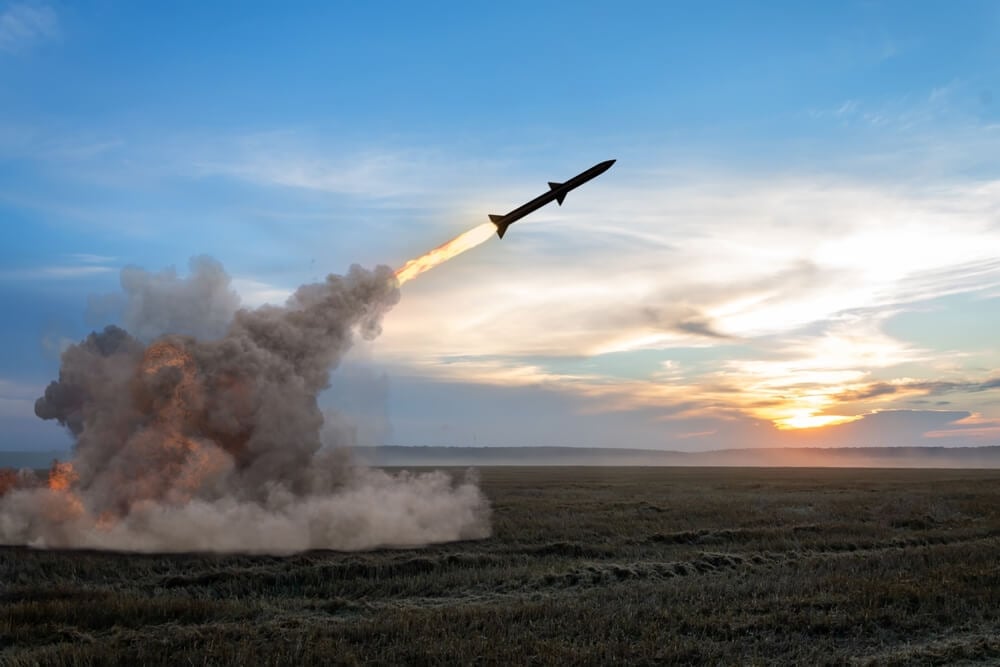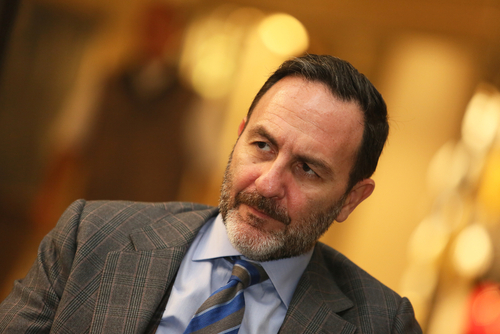Recently, I gathered with strategy and diplomacy experts ahead of the U.S. elections. As you know, it is said that "where diplomacy ends, war begins." Winston Churchill even reinforced this phrase by stating, “Jaw jaw is better than war war.” In other words, talking is better than fighting.
However, while discussing the title of the article we would write with these experts, we found ourselves at a sudden realization: “The Situation of the World Before the Greatest War After Two Major Wars.”
While discussing the political, diplomatic, demographic, and economic conditions, we understood that a major war is inevitable. Unfortunately, the upcoming great war will be the largest of all that have occurred so far.
The results of the U.S. elections and other parameters will only delay or accelerate this. Let me elaborate on the issue.
Looking back, we have perhaps left behind a long period without witnessing a major war. However, during this period, we lost more people than in both world wars combined. That is to say, we did not have a major war, but rather engaged in smaller conflicts.
Yet, more blood was shed. Some express regrettable views like "it would be better if there were a major war," while I have previously explained in an article that wars do not solve economic problems in detail.
Nevertheless, I will first try to illuminate the discussions around the "Great War" by approaching it economically and then from various perspectives.
The economic causes of the war
The last significant war we experienced, World War II, was a result of not only military conflicts but also deep economic problems. Analyzing the economic causes of the war is crucial for evaluating the possibility of another world war in light of the socio-political and economic developments that have occurred up to the present day. Let’s examine the causes:
The Economic Burdens of the Treaty of Versailles: The Treaty of Versailles, signed after World War I, resulted in heavy compensation obligations for Germany.
This situation led to Germany’s economic collapse and social unrest. Economist John Maynard Keynes predicted that these reparations would impose significant economic strain on German society, arguing that the treaty should be reconsidered. One could say it paved the way for government intervention in the economy.
The Great Depression: The Great Depression of 1929 affected the global economy, raising unemployment rates, decreasing trade, and straining international relations.
Economist Milton Friedman advocated for increased government intervention during this period, emphasizing that market shocks could create economic instability. Perhaps this opened the door for the concept of state capitalism, taking a step further than Keynes.
The Fascination with War Economies: Before the war, many countries embarked on militarization and rearmament processes. This invigorated the war economy.
Economist Paul Krugman, known for his analyses on war economies, examined the macroeconomic effects of war and argued that military expenditures contribute to economic growth. I had previously expressed my disagreement with him in a detailed article.
I am concerned to see that the dogma of “war economies save” persists
Honestly, I am concerned to see that the dogma of “war economies save” persists, believed not only by ordinary citizens but also by some thinkers and experts.
However, there are opposing views regarding the potential benefits of war. For example, someone like me. Still, it must be acknowledged that since World War II, numerous socio-economic and political developments have occurred worldwide.
All of this suggests that we are steadily being driven toward the largest war in history, and there is even the potential for the use of nuclear weapons. Whether it benefits economies or not, this is inevitable.
A new major war
Now, let’s look at the theses regarding the emergence of a new major war:
Geopolitical Tensions: International relations expert Graham Allison points out that the current state of the world and the competition between major powers could create a new "cold war" environment.
Especially, tensions between the U.S. and China, conflicts in strategic areas, and competition for resources are seen as triggering factors for a major war. In addition to hot conflicts like Russia-Ukraine and Gaza-Israel-Hamas-Hezbollah, we must also consider the sporadic escalations in tensions like China-Taiwan and North Korea-Japan.
Militarization and Nationalism: War historian Christopher Clark states that the revival of nationalism in countries could threaten current international peace. The rise of radical politics and movements alongside nationalism increases the likelihood of war.
Economic Inequalities: Sociologist Immanuel Wallerstein argues that economic inequalities and global imbalances can trigger social unrest and conflicts. In fact, without needing strong figures' evaluations, we can observe glaring inequalities and injustices. Calls for continuous war are made to cover up this strangeness experienced both globally and nationally.
Some experts argue that a major war is not as inevitable as it may seem, at least they list the following facts or hopes to avoid another war for a long time:
The Existence of International Institutions: Experts in international relations emphasize that organizations like the United Nations enhance diplomatic dialogues, thereby reducing the likelihood of wars.
Diplomat Richard Haass highlights the importance of such institutions and stresses the significance of cooperation. It would not be incorrect to say that he contributes to peace by writing numerous books on this subject. However, can we ensure peace in the presence of leaders eager to incite conflict while talking?

Nuclear weapons will cease to be “deterrent” in the hands of irrational individuals rather than rational leaders
Global Economic Ties: Dani Rodrik, who is both an economist and an economic historian like me, points out that globalization has made economies interdependent, which increases the costs of war. Economic interdependence is indeed a factor that encourages cooperation among countries. However, with the beginning of block formation in trade, I wonder if it is still possible to achieve cooperation to prevent a major war.
Nuclear Deterrence: Also known as “Second Strike Capability.” The existence of nuclear weapons is considered a deterrent that reduces the risk of direct military conflict between major powers.
Atomic scientist Bertrand Russell argued that the proliferation of nuclear weapons and the destructiveness of war have made countries more cautious. There is even a famous Russell-Einstein Manifesto. However, it is a reality that nuclear weapons will cease to be “deterrent” in the hands of irrational individuals rather than rational leaders.
Figures like Graham Allison, Henry Kissinger, and Michael T. Klare consider a major war inevitable. Richard Haass, Joseph Nye, and Fareed Zakaria also say, “There is still hope.”
Potential effects of nuclear war on humanity
Finally, let’s examine the potential effects of nuclear war on humanity and the planet:
Human Loss: The use of nuclear weapons and the resulting radioactive fallout would lead to deaths in the billions and long-term health issues.
Environmental Effects: Nuclear explosions will not only cause widespread destruction but will also contaminate soil and water resources. Long-term environmental effects will lead to deterioration of ecosystems.
 An anxious waiting has begun. I don’t know how long we will wait - Emre Alkin
An anxious waiting has begun. I don’t know how long we will wait - Emre Alkin
Global Climate Change: The explosion of numerous nuclear weapons will lead to a scenario known as “nuclear winter.” The reduction of sunlight due to atmospheric dust and smoke will cause temperatures on Earth to drop. This will cause serious problems in agriculture, food crises, and more.
Social Collapse: After a nuclear war, social structures will deteriorate. Issues like resource scarcity, chaos, and government collapse will arise.
The attempt of humanity to migrate to other planets does not seem to provide a direct solution to stopping a nuclear great war. Nonetheless, let’s keep our hope alive.
Efforts to explore space may promote international cooperation and peaceful research. Goals of reaching space could foster collaboration among countries to work toward common objectives. Such cooperation could lay the foundation for more robust diplomatic efforts to prevent the proliferation of nuclear weapons.
I wrote these lines on the day Trump was re-elected as president. Once we reach this stage, it is hardly possible to reverse what will happen next. What awaits Trump could trigger the scenarios we discussed. I can say that an anxious waiting has begun. I don’t know how long we will wait.